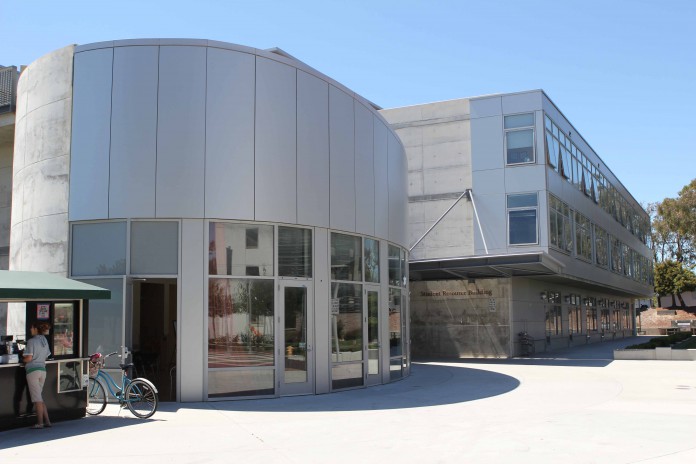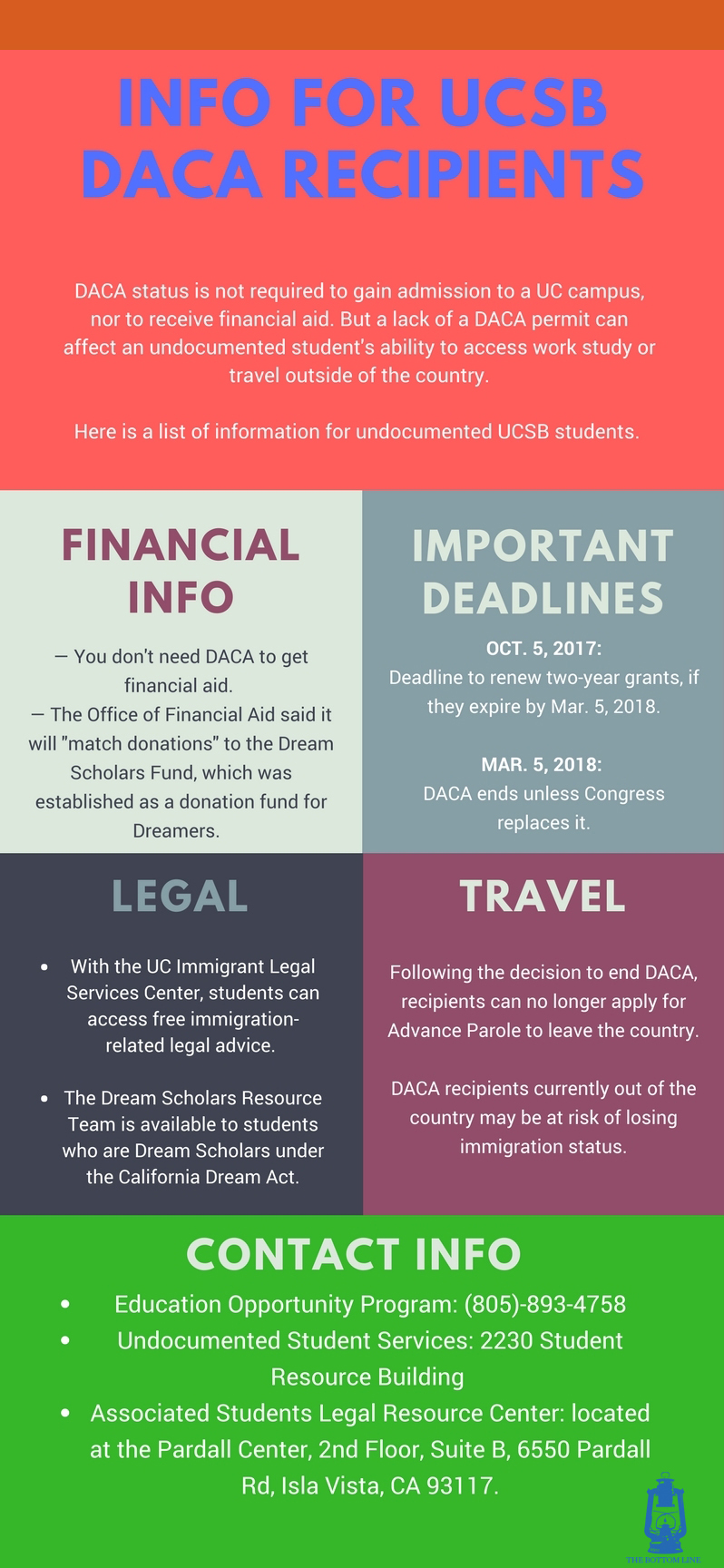
Nkechi Ikem and Hugh Cook
Undocumented Student Services held a forum on Friday in the Student Resource Building to provide information regarding the status of recipients of the Deferred Action for Childhood Arrivals program (DACA) in the community. The forum took place Friday afternoon, just hours after the University of California announced it had filed a lawsuit against the United States Department of Homeland Security.
Following President Donald J. Trump’s decision to rescind DACA after a six-month period, many students were left feeling unsure of their status. Led by Undocumented Student Services Coordinator Diana Valdivia, the forum provided information regarding financial aid, DACA renewal, and support services available to both students and DACA recipients who aren’t university students.
DACA, a product of the Barack Obama administration, is a program that allows the children of undocumented immigrants to attend school and obtain permits to work legally. Minors who qualify for DACA need to have entered the U.S. before the age of 16 and currently be under 30.
The repeal of DACA will not immediately end the program — instead, DACA recipients whose grants expire by March 5, 2018 can renew their grants by Oct. 5, 2017. Grants typically last for two-year terms. The United States Congress will have six months to pass a replacement for DACA, the president said last week, before the current administration begins to repeal all of the program’s components.
The event began with an exercise encouraging attendees to turn to their neighbors and share what had brought them to the space. Some in attendance spoke about an obligation to support undocumented students. Others came to the forum for information regarding their own status, as well as the status of their families.
DACA recipients at the forum were urged to apply for renewal of their grants before Oct. 5. Valdivia also reminded the audience that DACA status was not required for admission to UCSB, referring students to programs such as Immigrants Rising Up that teach immigration-status awareness and offer career advice to those without an Employment Authorization Document.
UCSB will hold several renewal workshops, which are currently scheduled for Sep. 11, Sep. 18, and Sep. 29. The location of these workshops will not be released publicly, but students who do need access to these services can contact Valdivia.

Forum attendees were also reminded that DACA recipients will no longer be able to apply for Advance Parole to travel outside of the country; those who are currently outside of the country are advised to come back as soon as possible.
Many students expressed worry regarding financial aid, but Valdivia assured them DACA is not needed to receive financial aid, as the California Dream Act Resources are available to those with or without DACA.
However, access to work study might be impacted for those who aren’t DACA recipients or for those whose application has expired. Undocumented students facing financial emergencies can contact Patricia Garcia of the Educational Opportunity Program, forum leaders said.
The UCSB Undocumented Students Services Center is encouraging those who can to donate to the Dream Scholars Fund. When an attendee asked if the Office of Financial Aid and Scholarships could match donations, a representative from the office said they could.
“Sure. We will match donations,” said Mike Miller, Interim Assistant Vice Chancellor for Enrollment Services and Director of the Office of Financial Aid & Scholarships.
While community members may not be able to take advantage of all the resources available to students, they can use the Associated Students Legal Resource Center.
DACA supporters vocally stated their commitment to protecting undocumented members of the community at the end of the forum. Many planned to educate their friends about this issue and to encourage them to donate. Others said they planned to make their employment spaces more accessible to undocumented students.
While the current state of DACA is concerning to many, Valdivia said, students can’t forget the importance of highlighting moments of strength and perseverance.
“I didn’t know many people talking about this issue or expressing support when I was younger. It felt very lonely,” said Catalina Mendiola, an educator who used to be undocumented as a young adult. “The most important thing we can do now is to listen to their stories.”










